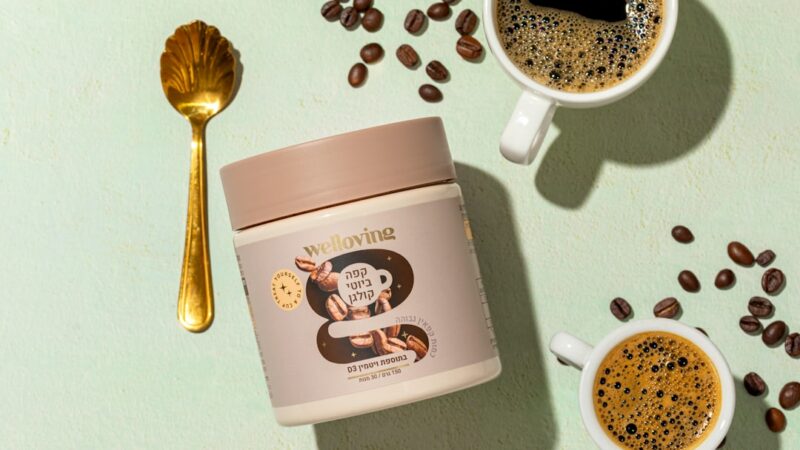“What Is Collagen Good For? Uncovering the Truth Behind the Hype”

Collagen is a protein that plays a crucial role in the body. It is the most abundant protein in our bodies and is found in our skin, bones, muscles, tendons, and ligaments. Collagen provides structure and support to our tissues and organs, making it essential for overall health and wellness. In this blog post, we will explore the various aspects of collagen and its importance in different areas of our health. From skin health to joint health, hair growth to gut health, collagen has a wide range of benefits that we will delve into. We will also discuss the potential risks and side effects of collagen use and provide tips on how to incorporate collagen into your diet and skincare routine.
Table of Contents
Key Takeaways
- Collagen is a protein that provides structure and support to the body’s tissues.
- Collagen plays a crucial role in maintaining healthy skin, joints, and gut health.
- While some studies suggest collagen supplements may improve hair and nail growth, more research is needed.
- Collagen supplements may aid in weight loss and muscle building, but should not be relied upon as a sole solution.
- Collagen can be incorporated into your diet through foods like bone broth and supplements, and into your skincare routine through topical products.
The Basics of Collagen: What Is It and How Does It Work?
Collagen is a protein that is made up of amino acids, specifically glycine, proline, hydroxyproline, and arginine. It is produced by our bodies naturally but can also be obtained through certain foods and supplements. There are several types of collagen, with type I being the most abundant in our bodies. Type I collagen is found in our skin, bones, tendons, and ligaments, providing strength and elasticity to these tissues.
Collagen works by forming a network of fibers that provide structure and support to our tissues. It acts as a scaffold for cells to grow on and helps to maintain the integrity of our skin, bones, muscles, and other connective tissues. Collagen also plays a role in wound healing by attracting cells that help repair damaged tissue.
The Role of Collagen in Skin Health and Appearance
Collagen plays a crucial role in maintaining the health and appearance of our skin. It provides structure and elasticity to the skin, keeping it firm and supple. As we age, the production of collagen decreases, leading to a loss of skin elasticity and the formation of wrinkles.
When collagen levels decline, the skin becomes thinner and less able to retain moisture, leading to dryness and the appearance of fine lines and wrinkles. Collagen also helps to promote the production of other proteins, such as elastin and fibrillin, which are important for maintaining skin elasticity.
There is scientific evidence to support the use of collagen supplements for improving skin health and reducing the signs of aging. A study published in the Journal of Cosmetic Dermatology found that participants who took collagen supplements for eight weeks experienced a significant improvement in skin elasticity and hydration compared to those who took a placebo.
Collagen and Joint Health: Separating Fact from Fiction
Collagen is often touted as a remedy for joint pain and arthritis. While there is some evidence to support its use for joint health, it is important to separate fact from fiction.
Collagen plays a role in maintaining the health of our joints by providing structure and support to the cartilage that cushions our joints. As we age, the production of collagen decreases, leading to a breakdown of cartilage and the development of conditions such as osteoarthritis.
Scientific studies have shown that collagen supplements can help reduce joint pain and improve joint function in individuals with osteoarthritis. A study published in the Journal of Agricultural and Food Chemistry found that participants who took collagen supplements for 24 weeks experienced a significant reduction in joint pain compared to those who took a placebo.
However, it is important to note that collagen supplements may not be effective for everyone. The results may vary depending on the individual and the severity of their condition. It is always best to consult with a healthcare professional before starting any new supplement regimen.
Does Collagen Really Help with Hair and Nail Growth?
Collagen has been touted as a remedy for promoting hair and nail growth. While there is limited scientific evidence to support this claim, collagen does play a role in maintaining the health of our hair and nails.
Collagen provides structure and support to our hair follicles and nail beds, helping to promote healthy growth. It also helps to strengthen the hair and nails, making them less prone to breakage.
A study published in the Journal of Investigative Dermatology found that collagen supplements can help improve hair thickness and reduce hair loss in individuals with thinning hair. However, more research is needed to fully understand the effects of collagen on hair growth.
Similarly, there is limited scientific evidence to support the use of collagen for nail health. However, anecdotal evidence suggests that collagen supplements may help strengthen nails and reduce brittleness.
It is important to note that there are other factors that can affect hair and nail growth, such as diet, genetics, and overall health. While collagen supplements may provide some benefits, they should not be relied upon as a sole solution for hair and nail health.
The Relationship Between Collagen and Gut Health

Collagen plays a role in maintaining the health of our gut by supporting the integrity of the intestinal lining. The intestinal lining acts as a barrier, preventing harmful substances from entering the bloodstream.
When the intestinal lining becomes damaged or compromised, it can lead to a condition known as leaky gut syndrome. This can result in symptoms such as bloating, gas, diarrhea, and food sensitivities.
Collagen contains amino acids that help to repair and strengthen the intestinal lining, reducing inflammation and promoting gut health. It also helps to promote the growth of beneficial bacteria in the gut, which is important for digestion and overall gut health.
There is scientific evidence to support the use of collagen for improving gut health. A study published in the Journal of Clinical Gastroenterology found that participants who took collagen supplements for 12 weeks experienced a significant improvement in symptoms of irritable bowel syndrome (IBS) compared to those who took a placebo.
Can Collagen Help with Weight Loss and Muscle Building?
Collagen has been touted as a remedy for weight loss and muscle building. While there is limited scientific evidence to support these claims, collagen does play a role in maintaining the health of our muscles and promoting weight loss.
Collagen is a rich source of protein, which is important for muscle growth and repair. It also contains amino acids that help to support the production of lean muscle mass.
A study published in the British Journal of Nutrition found that participants who took collagen supplements while participating in a resistance training program experienced a significant increase in muscle strength and mass compared to those who took a placebo.
In terms of weight loss, collagen has been shown to help promote satiety and reduce appetite. A study published in the Journal of Medicinal Food found that participants who took collagen supplements experienced a significant reduction in food intake compared to those who took a placebo.
However, it is important to note that collagen supplements should not be relied upon as a sole solution for weight loss or muscle building. A balanced diet and regular exercise are still the most effective ways to achieve these goals.
The Potential Benefits of Collagen Supplements for Overall Health
In addition to the specific benefits mentioned above, collagen supplements may have other potential benefits for overall health and wellness.
Collagen has been shown to help improve bone density and reduce the risk of osteoporosis. A study published in the Journal of Bone and Mineral Research found that participants who took collagen supplements for 12 months experienced a significant increase in bone mineral density compared to those who took a placebo.
Collagen also plays a role in promoting heart health by helping to maintain the integrity of blood vessels and reducing inflammation. A study published in the American Journal of Clinical Nutrition found that participants who took collagen supplements for six months experienced a significant reduction in arterial stiffness compared to those who took a placebo.
There is also some evidence to suggest that collagen supplements may help improve sleep quality and reduce symptoms of anxiety and depression. However, more research is needed to fully understand the effects of collagen on these conditions.
Collagen vs. Other Anti-Aging Products: Which Is Best?
When it comes to anti-aging products, collagen is often compared to other options such as retinol, hyaluronic acid, and peptides. Each of these ingredients has its own benefits and drawbacks, and the best option will depend on individual needs and preferences.
Collagen is a protein that provides structure and support to our skin, helping to maintain its elasticity and firmness. It can help reduce the appearance of wrinkles and improve overall skin health.
Retinol is a form of vitamin A that helps to stimulate collagen production and increase cell turnover, resulting in smoother, younger-looking skin. It can also help reduce the appearance of fine lines and wrinkles.
Hyaluronic acid is a substance that occurs naturally in our bodies and helps to retain moisture in the skin. It can help plump up the skin and reduce the appearance of fine lines and wrinkles.
Peptides are short chains of amino acids that help to stimulate collagen production and improve skin elasticity. They can also help reduce the appearance of wrinkles and improve overall skin health.
The best option will depend on individual needs and preferences. Some individuals may prefer collagen supplements for their overall health benefits, while others may prefer topical products that contain retinol, hyaluronic acid, or peptides.
The Risks and Side Effects of Collagen Use
While collagen supplements are generally considered safe for most individuals, there are some potential risks and side effects to be aware of.
Some individuals may experience digestive symptoms such as bloating, diarrhea, or constipation when taking collagen supplements. These symptoms are usually mild and temporary, but if they persist or worsen, it is best to discontinue use and consult with a healthcare professional.
Collagen supplements are derived from animal sources, such as cows, pigs, or fish. Individuals with allergies or sensitivities to these animals may experience an allergic reaction when taking collagen supplements. It is important to read the labels carefully and choose a collagen supplement that is suitable for your specific dietary needs.
There is also a potential risk of contamination with heavy metals or other harmful substances in collagen supplements. It is important to choose a reputable brand that undergoes third-party testing to ensure the quality and safety of their products.
It is always best to consult with a healthcare professional before starting any new supplement regimen, especially if you have any underlying health conditions or are taking any medications.
How to Incorporate Collagen into Your Diet and Skincare Routine
There are several ways to incorporate collagen into your diet and skincare routine.
To increase your collagen intake through diet, you can consume foods that are rich in collagen, such as bone broth, chicken skin, fish skin, and pork skin. You can also choose collagen supplements that are derived from animal sources or marine sources.
When choosing a collagen supplement, it is important to look for one that is high in bioavailable collagen peptides. These are smaller molecules that are more easily absorbed by the body and have been shown to have greater benefits for skin health.
In terms of skincare, you can use topical products that contain collagen or ingredients that help stimulate collagen production, such as retinol, hyaluronic acid, or peptides. These products can help improve the appearance of wrinkles and promote overall skin health.
It is important to note that while collagen supplements and topical products can provide some benefits, they should be used in conjunction with a healthy lifestyle that includes a balanced diet, regular exercise, and proper skincare.
Collagen is a protein that plays a crucial role in our bodies. It provides structure and support to our tissues and organs, making it essential for overall health and wellness. Collagen has a wide range of benefits, from improving skin health and reducing the signs of aging to promoting joint health and gut health. While collagen supplements and topical products can provide some benefits, they should be used in conjunction with a healthy lifestyle. It is always best to consult with a healthcare professional before starting any new supplement regimen.
If you’re interested in learning more about the benefits of collagen, you might also want to check out this informative article on TurnToBeHealthy.com titled “5 Special Tips for Heart and Kidney Failure Symptoms.” This article provides valuable insights into the symptoms of heart and kidney failure and offers helpful tips to manage these conditions. Understanding the connection between collagen and heart and kidney health can contribute to a holistic approach to overall well-being. To read the full article, click here.
FAQs
What is collagen?
Collagen is a protein that is naturally produced by the body and is found in skin, bones, muscles, tendons, and other connective tissues.
What are the benefits of collagen?
Collagen is known to improve skin health, promote joint health, and support muscle mass. It may also help improve gut health and aid in weight loss.
How does collagen improve skin health?
Collagen helps to improve skin elasticity, hydration, and firmness. It can also help reduce the appearance of fine lines and wrinkles.
Can collagen supplements help with joint pain?
Some studies suggest that collagen supplements may help reduce joint pain and improve joint function in people with osteoarthritis.
What are the different types of collagen?
There are several types of collagen, but the most common types are type I, II, and III. Type I is found in skin, bones, and tendons, while type II is found in cartilage. Type III is found in skin, muscles, and blood vessels.
Are there any side effects of taking collagen supplements?
Collagen supplements are generally considered safe, but some people may experience mild side effects such as digestive upset or a bad taste in the mouth.
Can collagen supplements help with weight loss?
Some studies suggest that collagen supplements may help with weight loss by increasing feelings of fullness and reducing appetite. However, more research is needed to confirm these findings.







